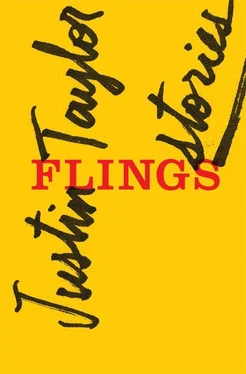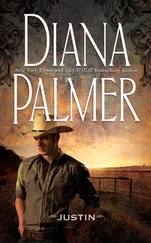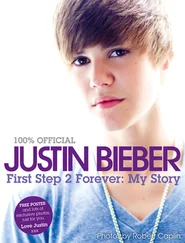The Jewish Cemetery was at 13 Shan Kwong Road in the Happy Valley, about a mile away from the racetrack and the colonial cemetery. An unlocked gate on a steeply sloping residential street — she walked past it twice before she noticed the Star of David in the metalwork. She followed a concrete path between a bamboo construction fence and a day school that was closed for the summer. Behind the school the grounds opened out. There was a durian tree and a stone fountain. Beyond that, the markers and tombs. The heat was brutal but the air hadn’t been so clear in weeks. The chopstick buildings shimmered in the high middle distance.
In addition to the usual — name, dates of birth and death, epitaph (many in Hebrew and English, some only in Hebrew, almost none in Chinese) — these markers often listed birthplace. Many of the Jewish dead of Hong Kong, Danielle noticed, hailed from Eastern Europe: Carl Bercovitz, born at Bucharest, 1846, aged 43 years. Pearl Antschel Steinberg, native of Russia, died 3 August 1901, aged 72 years. Pepi Eidelstein, born 25 July 1862 in Brody Austria, died 4 July 1899. Elias Salnicker, Bialostock, Russland, 1862–1898. Mary Bunderoff, Tergu Okna, Rumania, 12 Aug. 1904, aged 31 years. Max Wolff, Kadan Kurland. Carla Dietrich nee Salenicker, wife of Max, mother of Moses Benjamin and Myron Alexander, born in Odessa 3 April 1894, died 22 April 1947.
Rachel Leah Rapoport Rahf, born in Hankow — the rest was in Hebrew, which Danielle couldn’t read.
Danielle thought of her grandfather, her father’s father, American-born but whose parents (she’d never known them) had come over from Lvov. Her great-grandmother Essie pregnant on the steamer ship, giving birth in a charity hospital or else, more likely, at home. They’d lived in Lower East Side tenements; when their son, Yakov, had come of school age he’d changed his name to Jack, taught himself English, put himself through night school and then law school, bought the building that housed his practice and a brownstone on the southwestern border of Prospect Park. Stan and his sister, Sarah, had grown up in that house, which was later left to them, and they sold it and split the money. Stan married Lynne and they moved to Long Island, then to Westchester, where Danielle had grown up. Between being thrown out of his house and moving to Asia, Stan had rented a walk-up at Ludlow and Hester, right back where the first immigrant Rosses had lived.
Danielle thought about how her life, how all of their lives, would have been different if Essie and her husband, Danielle’s great-grandfather — whose name Danielle could no longer recall, if she’d ever known it in the first place — had gotten on a boat bound elsewhere. Or if Essie had died along the way to America, or if she’d stayed put in Lvov. Every choice makes us and remakes us. What’s incredible, Danielle thought, is not that we might have been somebody else, or nobody, but rather that despite everything we are somehow still ourselves.
She should send her father a text, she thought: see how his trip was going, if he knew yet when he was coming back. Come to think of it, though, an email might be better — she wouldn’t have to be so terse in an email, and he wouldn’t feel that text message pressure for an immediate reply. Yes, it would definitely be better to email — which of course she could do with the BlackBerry, but there was a laptop back at the apartment that would be much more comfortable to use. She pictured herself stretched out on her father’s couch with the machine in her lap, Beggars Banquet tinkling from the small speakers and the sun setting into the bay behind her as she shared her impressions of Lan Kwai Fong, the Jewish cemetery, Lamma Island — all the places she’d been. She imagined him in his Beijing hotel room reading her letter, probably on his BlackBerry, and how the small screen would make whatever she wrote seem much longer than it was. Maybe a text would be better after all — save the stories for when he got back — though of course this still wasn’t the place to send it from.
Mrs. Rachel Levy, born in Shanghai, died 2 January 1968, aged 84. Gunner Wilfred Ross, A. A. Regt. Royal Artillery, died at Hong Kong 12 November 1938, aged 20 years. Fanny, dearly beloved wife of S. S. Benjamin, born in London, 1867–1892. Jacob Ezekiel Dagai: born 1 December 1902, Bombay, India, died 1 August 1999. Samuel Moses Perry: born in Shanghai 29 Feb. 1904, died in Florida U.S.A. 5 Oct. 1981—and yet buried here. In memory of my dear husband, Vladimir Zubitsky, who taught me what real love is, born in Kunelai, Siberia, May 25, 1905, died January 4, 1973. Harry Morgan Weinrebe: born April 1, 1914, Boston, Massachusetts, died March 14, 2000. Anatoly Livshits, no date or place of birth given, died 21 October 2005: Passed away in Shenzhen, alone in this world.
Siegfried Kumur, George Bloch, Adolf Wolepstein, Flora Edgar.
Moselle Gatton, Louisa Anna Green, Elias David Sykes Sassoon.
Danielle dug into the earth with the toe of her sneaker and found a rock. It was smooth and mottled gray-white, smaller than an egg. She placed it atop the Livshits headstone, then made for the shade of the durian tree. The sweet-rot stink of the fruit was almost overpowering but she was glad to be out of the sun. She sat with her back against the trunk and looked out across the sea of graves, then up through the leaves toward the blue apartments anchored in the sky.
March and there’s dirty snow humped on the windowsills, still; sidewalk’s mucked, sky’s been the color of dust for days. He’s shaving his head over the bathroom sink, weekly ritual some years now, ever since that monk’s tonsure blossomed high in the back. He remembers how the pads of his fingers felt when they first found the smooth patch, warm and soft, and how he thought, Shit no, not gonna be that guy. So instead he’s this guy, clean-scalped but boasting a thick beard, well-groomed — hazelnut, he likes to think but would never say. A well-groomed beard is paramount, believes Gregory, who when he meets someone new says “Please, call me Greg” but doesn’t mean it. The full name is what he likes, its fine whiff of archaism, bouquet of saints and England, popes and Greece; the two g sounds granting clangorous passage toward the open and humming “ory” with its quick high finish like a young wine, like the inflatable slide you ride to escape from the burning plane. But nobody calls him Gregory except his mother, and he rarely calls her at all. So Greg, then: a higher-up in the lower echelon of a medical copy-writing firm in West Chelsea. Sometimes it seems like science fiction that one blue train line should connect that neighborhood to the part of Bed-Stuy where he’s been living for — what is it, two years now? Two years. Merciful Mary. Two years. Fucking hell.
In April he stops at his corner coffee shop for an afternoon latte, asks the barista out on a date. Not only does she say yes, but over Rioja it turns out she doesn’t just work at the Grind Shack, she owns it. Used to have another one just like it, successful, in Charlottesville, Virginia, unless she said State College, PA. Anyway she sold that place and bought this one because she wanted to have the experience: city life. Audrey says business is booming but she never imagined she’d hate New York the way she does. She expected an adjustment, sure, but up all night crying? Never. Says she’s wolf-whistled at by corner drunks, wants to see a field sometime, may be suffering PTSD from a train grope.
“What can you do?” he says.
“I’m looking for a buyer,” she says. He’d meant the question rhetorically — hadn’t, in fact, thought it could be taken any other way.
He has these great big bear hands and loves them, favorite thing about himself, easily, the way a double cheeseburger looks a little lost when held in them, or the neck of his old Fender Strat. Proud, too, of the arms on which those hands are mounted: half gift and half result of honest effort (he’d looked into a gym near his office, joined the Y near his place instead). He’s in the bathroom, lathering his head. It’s May and already most days the mercury’s hitting eighty-five by noon. The stripper — one of four strangers he shares this narrow two-story house with — is banging on the door for the second time. She’s got her own shaving to take care of, plus mascara, body glitter, diaphragm. She’s running late, she says; the car the club sends for her is going to be here any minute. His eyes are red; cheeks round, puffy, hairy, and high. Everything about his job disgusts him. He engineers the jargon that lies the company out of whatever the studies they’ve done have proven more or less unequivocally. The raw data is enough to keep you up half the night mulching your fingernails, choking back bile and fright. Ergo face puff, ergo eyes. He buys Žižek books by the pound and wine by the gallon. Žižek and Audrey, he feels, are the only people who understand him. Zombies his way through the workweek with a bottomless coffee mug — I’m always on drugs, he thinks at the mirror, always trying to go faster or else slow down, my fingers a beige blur over the beige keyboard, up and down my beige girlfriend; if I were someone else looking at myself at my desk I’d see a slack face bathed in monitor light, dull. He heats the razor by running it under the faucet. He touches the thin hot steel to his head, pulls.
Читать дальше












